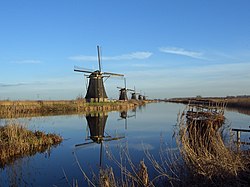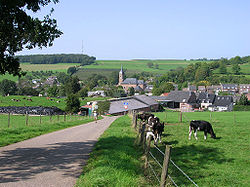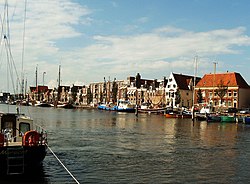This article needs additional citations for verification .(September 2014) |

The regions of the Netherlands provides links to both regions and subregions of the Netherlands.
This article needs additional citations for verification .(September 2014) |

The regions of the Netherlands provides links to both regions and subregions of the Netherlands.
The regions of the Netherlands are divided into the North, South, West and East Netherlands.
Many regions in the Netherlands are officially defined by certain regulations of organizations.
NUTS-1 Regional divisions as used by the European Union: [1]
The subregions (Dutch: streek or landstreek (plural: (land)streken), literally translating to a combination of 'land/country area/region') are non-administrative area in the Netherlands that can be demarcated on grounds of cohesion with regard to culture or landscape. This means that a landstreek is not bound by provincial or municipal boundaries. Below is a list of all Dutch landstreken with the province(s) in which they are located mentioned between brackets.











